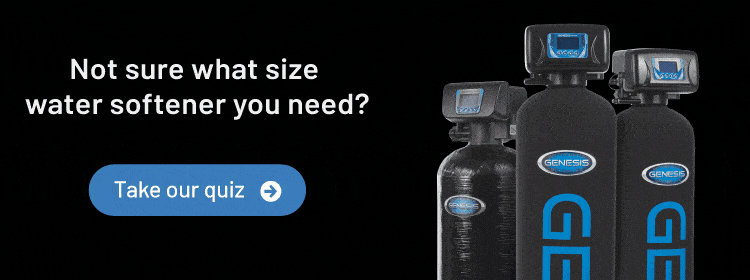Which Water Treatment System Does My Home Need?
Posted by Discount Water Softeners on Sep 8th 2020
What’s The Difference?
Determining the type of water filtration system your home needs, if any, depends on the function you want it to provide. There is no single filter that eliminates every type of contaminant. This is important to consider when selecting a system for your household. Always learn what’s IN your water first—then decide what you want OUT of it.
With numerous filtration options available, arming yourself with knowledge of what your water contains helps to decide the type of filter that will best fit your specific needs and preferences. Then, you can determine which contaminants you want your filtration system to remove. Which substances are harmful to your health? Which are beneficial? Which make your water taste better? Which may change over time? These are all questions that can be answered by obtaining an annual drinking water quality report from your local water supplier, or, getting your water tested if you have a private well.
Once you know what you want to filter from your water, the next step is understanding the difference between treatment systems. Water softeners, iron filtration systems, whole house water softeners, and whole house filtration systems are terms that are often confused. Here’s some help to differentiate between them.
Whole House Water Filtration
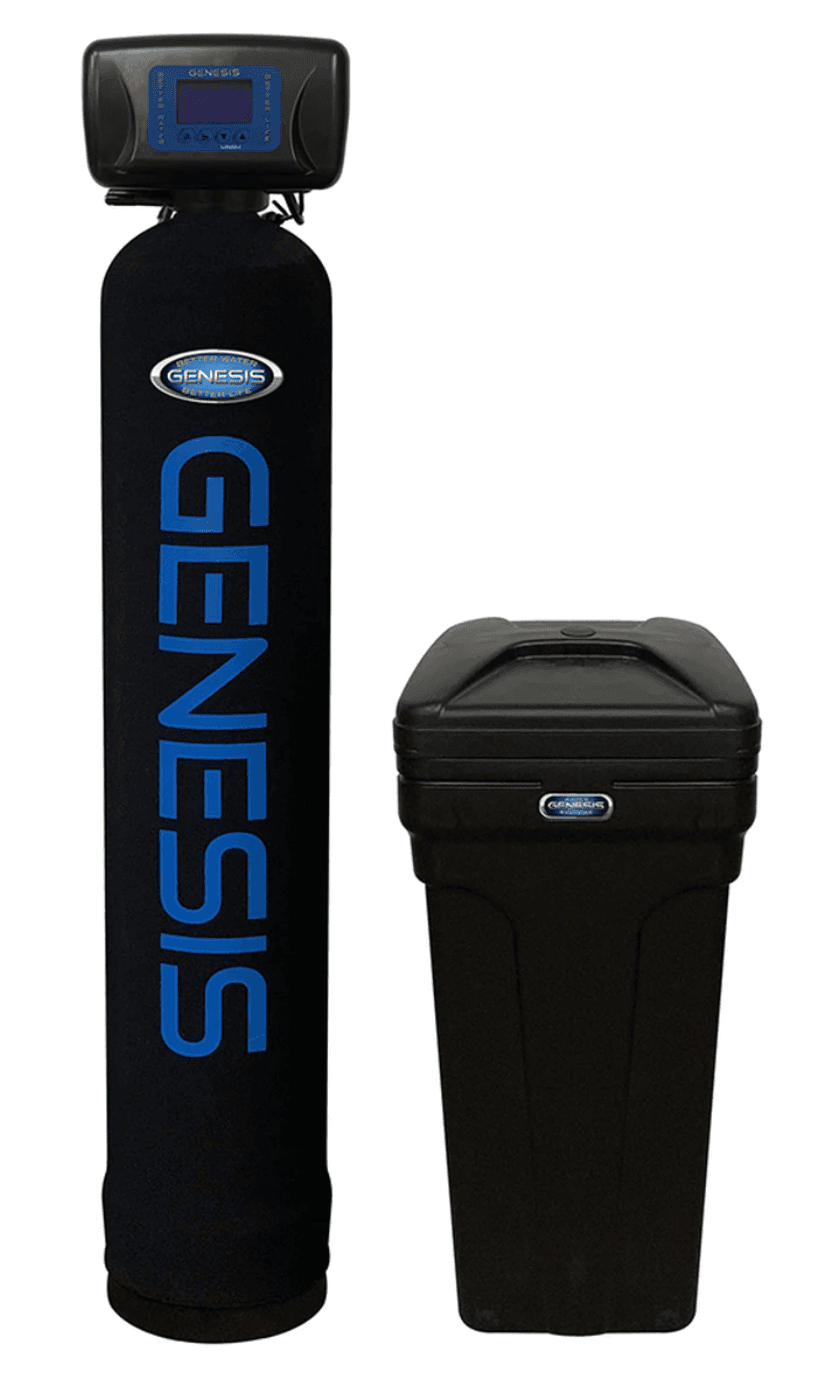
A whole house filtration system can be a lot of things depending on what you want to filter from your water. If you’re on a well supply, for example, a filtration system may have a mechanical sediment filter, an ultraviolet system, and a water softener. The water would be softened and disinfected, and debris removed. A whole house filtration system for city water may just be to get rid of sediment and chlorine, or perhaps your issue is hard water and filtration will include a softener.
Whatever your water needs are, whole house water filtration systems all have this in common: they are installed where the first entry point of water is received to filter water the moment it flows into your home. This type of system treats all the water distributed throughout a household, guaranteeing that filtered water flows through water machines, dishwashers, coffee makers, shower heads, and faucets.
Water Softeners
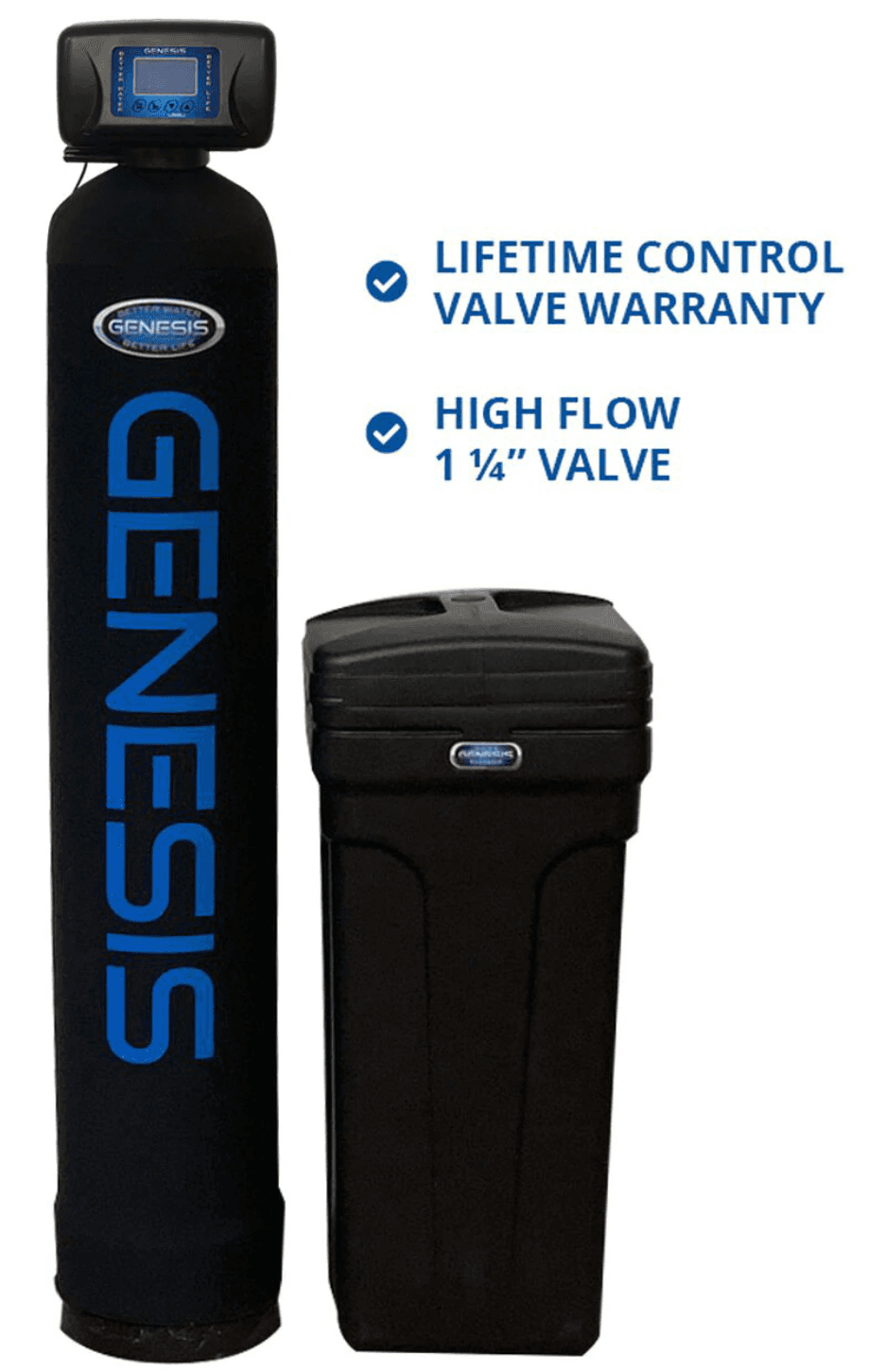
Water softeners are point of entry filtration systems that remove high concentrations of calcium and magnesium that cause hard water and scaling. This is achieved by eliminating hardness ions through the process of ion exchange. Resin beads inside a softener trap the calcium and magnesium ions and exchange them for sodium or potassium. Once the beads become full of hardness ions, a brine solution removes the calcium and magnesium from the beads and is flushed down the drain.
Softening systems are best and most efficient for the removal of hard water minerals, but can also be used for filtering some forms of iron from water. Softeners are not designed to filter heavy metals, chlorine, fluoride, lead, and other chemicals or bacteria. If you are concerned about impurities like mercury, pesticides and other contaminants, a water softener alone is not the solution. A water softener is considered a whole house filtration device, but this is just one of many types of whole house filtration systems.
Iron Filtration
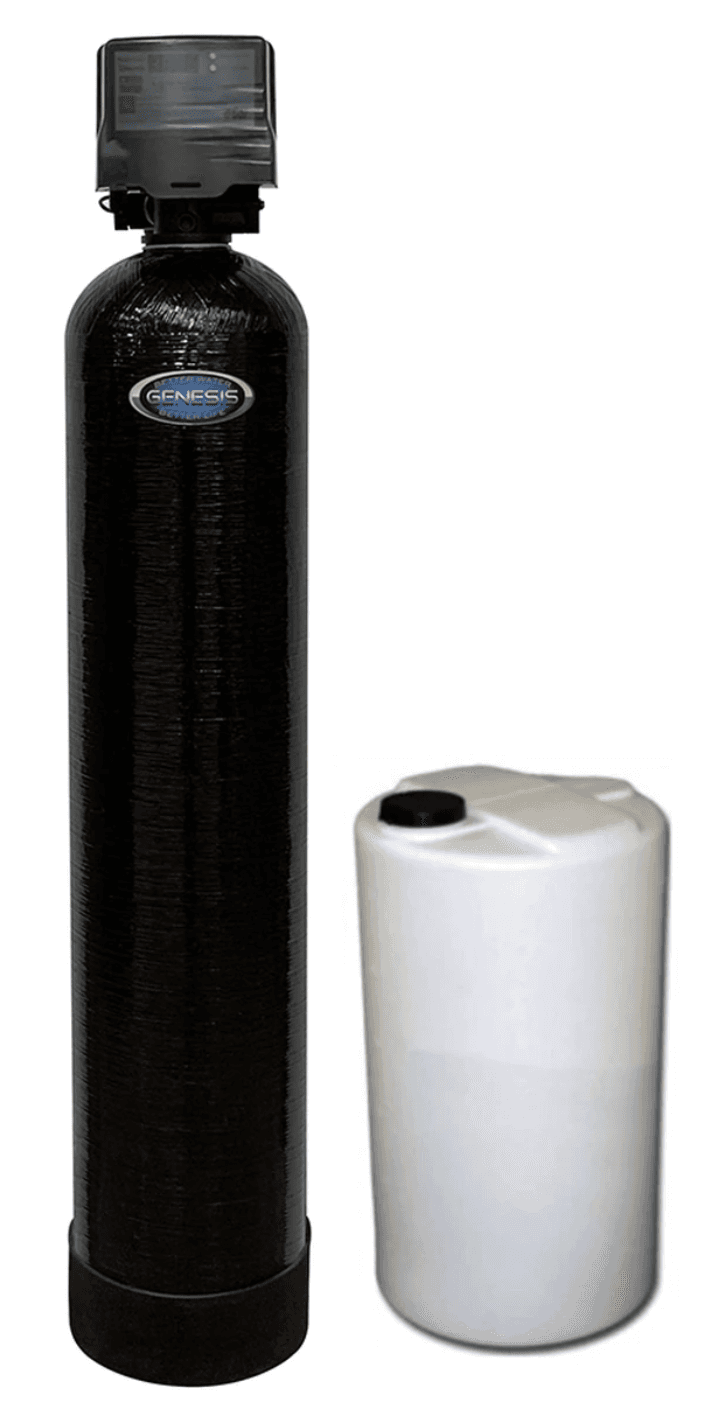
Your typical water softener contains resin beads that remove the hardness minerals, calcium and magnesium, through the process of ion exchange. While ion exchange is successful in dealing with both hard minerals and iron, with a greater than normal iron concentration, as well as some stubborn forms of iron, a water softener alone may not be the answer.
Removing high levels of iron can also take a toll on your water softening system, causing frequent regeneration, leading to a shortened resin life. Over time, iron will lessen the ability of the water softener to remove minerals from the water, and often, excess iron will remain in the supply. That’s when it’s advantageous to update your water treatment equipment to include iron filtration.
Iron can be a troublesome element, even in small quantities. When it comes to iron removal, water softeners are effective when iron concentrations are low and all or most is in a soluble state. If you own a water softener but your water contains high levels of inorganic iron, an iron filter is a valuable supplement. Water that is high in iron often has elevated levels of manganese, hydrogen sulfide, and arsenic. A whole house iron filtration system will remove or sharply reduce these contaminants as well as iron. Iron filtration systems commonly use oxidizing filters to convert ferrous iron to ferric iron, which can then easily be removed from the water.
Whole House Water Softener
While a point of entry system is a whole house water treatment solution, a point of use system treats only a portion of that water. Whole house water softeners are point of entry systems, filtering out hard minerals before they travel through your home’s pipes, causing clogs, or damage to your water-using appliances. Point of use systems filter water at the point where water is being used and is installed at a single water connection, typically under the sink in your kitchen or bathroom.
Point of use filters are capable of using advanced filtration methods like carbon filtration and reverse osmosis, and will provide great tasting water, as well as water that’s free of the most common tap water contaminants, but POU filtration only provides one source of quality drinking water.
Homeowners who choose to install a whole home water softening system may also elect to install a POU reverse osmosis system. Water softeners and reverse osmosis filtration work well as partners. While there is a small sediment filter in an RO filter, it has a hard time removing the minerals that make water hard. But along with an RO system, the water softener reduces the water hardness, acting as a protective barrier for the RO filter, keeping it from fouling and extending the life of the fragile membranes. A whole house water softener simply is a system that treats all hard water entering your home, at the point of entry, and can also be paired with other filtration devices.
Improving Your Home’s Water
Now that you know what you’re dealing with, you can decide which filtration system is best for your household. There’s really no disadvantage to implementing a whole house water filtration system, or a combination of various water filtration solutions. Removing contaminants by use of filtration improves overall water quality and the health of your home.
